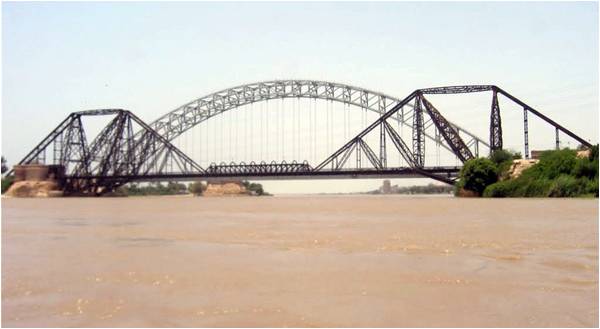
Illustrious Indian environmentalist Sunita Narain explained contemporary climate events in South Asia as a "double whammy" of poor drainage and recurring floods.
Narian, who was named as one one of the 100 most influential people the world over by Time in 2016, made the comments while speaking to political scientist Ayesha Siddiqa. She said region-wide drainage stood compromised. This, she said, was the least priority for governments, bureaucrats and urban planners. Compounding the challenge was how the region had "deliberately" left itself at the mercy of floods. "We have dammed our rivers, filled our ponds and tanks and built houses in flood plains."
Narain, who is the India's Centre for Science and Environment director general, said while floods were a routine phenomenon in South Asia, what had undergone a change was the "ferocity, intensity and extent" of flooding.
The region, Narain had pointed out, receives an average of 100 rain hours per annum. Now with climate change, she said, the region experiences more rain in fewer hours. Responding to a query on how Pakistan was experiencing greater rainfall than the south, Narain said while she was not in a position to comment on the country, trends mapped in India showed rising regional variation.
As Siddiqui emphatically observed that these instances were not freak events over the course of the conversation, Narain concurred. This is a clear trend, she said.
While conventional wisdom held flooding to be a boon for agriculture at the expense of just one crop, alternating heatwaves compromised the impact. the Padma Shri awardee said. Unless farmers worked hand-in-hand with to harvest rain, ensure effective drainage and recharge groundwater, the region will continue alternating between periods of drought and flooding.
Recurring weather events had started leaving the trademark resilience of the region's denizens ebbed, Narain said. Internal migration rates had been shooting through the roof. Flood and droughts, over war and conflict, were now compelling people to migrate elsewhere.
Neighbours Talking, hosted by Siddiqa, is broadcast every Sunday at 7:30pm on Naya Daur TV. It covers developments in South Asia.
https://www.youtube.com/watch?v=OjyVBlI7lFI
Narian, who was named as one one of the 100 most influential people the world over by Time in 2016, made the comments while speaking to political scientist Ayesha Siddiqa. She said region-wide drainage stood compromised. This, she said, was the least priority for governments, bureaucrats and urban planners. Compounding the challenge was how the region had "deliberately" left itself at the mercy of floods. "We have dammed our rivers, filled our ponds and tanks and built houses in flood plains."
Narain, who is the India's Centre for Science and Environment director general, said while floods were a routine phenomenon in South Asia, what had undergone a change was the "ferocity, intensity and extent" of flooding.
The region, Narain had pointed out, receives an average of 100 rain hours per annum. Now with climate change, she said, the region experiences more rain in fewer hours. Responding to a query on how Pakistan was experiencing greater rainfall than the south, Narain said while she was not in a position to comment on the country, trends mapped in India showed rising regional variation.
As Siddiqui emphatically observed that these instances were not freak events over the course of the conversation, Narain concurred. This is a clear trend, she said.
While conventional wisdom held flooding to be a boon for agriculture at the expense of just one crop, alternating heatwaves compromised the impact. the Padma Shri awardee said. Unless farmers worked hand-in-hand with to harvest rain, ensure effective drainage and recharge groundwater, the region will continue alternating between periods of drought and flooding.
Recurring weather events had started leaving the trademark resilience of the region's denizens ebbed, Narain said. Internal migration rates had been shooting through the roof. Flood and droughts, over war and conflict, were now compelling people to migrate elsewhere.
Neighbours Talking, hosted by Siddiqa, is broadcast every Sunday at 7:30pm on Naya Daur TV. It covers developments in South Asia.
https://www.youtube.com/watch?v=OjyVBlI7lFI

